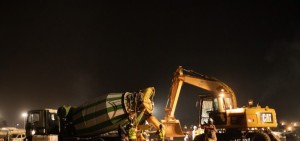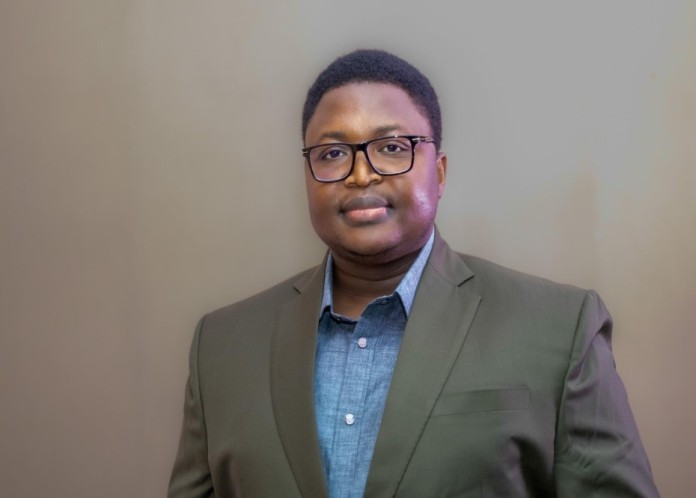By Vickie Remoe
A $476 million investment into Sierra Leone’s iron-ore-rich Northern Province offers new hope that rural communities will reap the rewards of the region’s considerable mineral deposits. The challenge for this West African nation has always been striking a win-win-win deal where investors, local communities, and the central government profit.
Under the new deal, Arise Integrated Industrial Platforms Limited (Arise IIP) will operate and expand the 200km Pepel Rail and Port, which transfers iron ore from remote areas to the sea for export. The new agreement (which is yet to be ratified by parliament) will transfer control of the rail from Leone Rock Metal Group (previously Kingho).
Timothy Kabba, the Minister of Mines and Mineral Resources, signed the rail and port expansion agreement that he says will change the country’s sometimes troublesome track record on foreign direct investment.
“My responsibility is to provide fairness in the sector, accentuate the opportunities, and protect and maximize the interests of the people in their mines,” said Kabba.
When Kabba received the appointment as Minister of Mines in July 2020, he inherited a legal dispute between the Government and Gerald Group’s SL Mining (now Marampa Mines). He brought that matter to a settlement on the condition Marampa would access the rail.
“It is not in Sierra Leone’s interest to strangle any existing investors. On the contrary, with Arise IIP’s investment, we will stimulate growth through increased production at a reduced cost for all,” said Kabba.
The new agreement guarantees a more level playing field for all the mines in the Northern Corridor. Leone Rock and Marampa Mines can focus on their core business—mining, while Arise IIP will invest $476 million to expand the rail and port. Arise has a 25-year lease. They’ll add 25 kilometers to the rail, the infrastructure needed to increase exploration.
“Leone Rock has a concession of six to seven billion metric tons of estimated 12 billion metric tons at the Tonkolili mines. The rail infrastructure doesn’t extend far enough for new players to take the rest. We will create new opportunities for iron ore exploration and bauxite with Arise IIP,” said Kabba.
African Mineral Limited (AML) built the Pepel rail under a 2013 mining concession backed by a $2 billion investment from Shandong. The latter, who had a 25% stake, acquired the remaining 75% when AML went bankrupt in 2015. But Shandong also went into administration. Before Shandong exited the Tonkolili mine in September 2020, they returned the rail assets to the Government, who, per the mining agreement, had the first right of refusal. In addition to transferring the rail to a third party, the Arise IIP contract means more revenue for the central Government and land owners.

Arise will pay $1.1 million annually in addition to a 10% profit on total export. While the Pepel Rail and Port Expansion project will be their first entry into Sierra Leone, they have a portfolio that spans West and Central Africa. They’ve built and operated Gabon’s Special Economic Zone (GSEZ) for forestry, and Togo’s PIA, a vertically integrated industrial zone for agriculture, mining, and textile. In Benin, they’ve invested $1.5 billion in the Glo-Djigbé Industrial Zone (GDIZ), a PPP with the Government of Benin to promote investments in textiles, agriculture, and oil with existing agreements to develop industrial zones with the Governments of Tchad, Nigeria, Congo, and Rwanda.
Arise IIP will pay more surface land rent than their predecessors to the five chiefdoms impacted by the rail and port.
In Sierra Leone, there have been instances where landowners have been deprived of fair compensation and excluded from the consultation before signing FDI contracts. This lapse often sets the stage for conflict between the mines and affected communities.
“When Leone Rock came, we went to settle the outstanding surface rent on the Tonkolili concession. It had gone unpaid for two years. The accumulated rent paid to the five chiefdoms was $40,000. Five chiefdoms in three districts split $40,000. A paltry sum!” said Kabba.
In September 2022, Sierra Leone passed two progressive laws; the Customary Land Rights Act and the Land Commission Act. They give local landowners the power to negotiate the value of their land and compel all companies operating in Sierra Leone to obtain the consent of local communities before starting activities.
Mr. Kabba said the new laws made it easier to negotiate a better deal for the five chiefdoms who had already leased their lands to Leone Rock.
“The annual surface rent agreement will increase from $20,000 annually to $250,000. Safroko Limba, Makari Gbanti, Bake Loko, Loko Masama, and Kamasondo chiefdoms will receive $50,000 each,” said Kabba.
Not everyone is happy about the Government’s plan to bring a third-party port and rail infrastructure expert to manage the Pepel rail and port. Local news reports say Leone Rock Metal Group plans to sue the Government for terminating the six-year lease agreement to manage and operate the port.
“It was always the Government’s intention to find a third party to manage the rail and port. Upon signing the lease agreement in 2021, we reserved the right to engage a port operator to independently run the railway and port after the first two years of the lease, provided we sent a six-month notice to Kingho,” said Kabba.
Kingho received notice under the agreement. The time has come for Sierra Leone to adopt a new approach to foreign direct investment.
“We have acted to open the mining sector and break the infrastructure bottleneck, but we’ve also signed a deal that is fair to all. The resource curse will be a thing of the past. Sierra Leone must be a choice investment destination but not at the expense of local communities. Mining won’t change overnight, but we are definitely on the right track.”





“It is not in Sierra Leone’s interest to strangle any existing investors. On the contrary, with Arise IIP’s investment, we will stimulate growth through increased production at a reduced cost for all,” said Kabba.
But is this not what this current regime is doing to Kingho? In 2020 when Kingho took over the running of the rail, it was dilapidated and they invested millions of dollars into it to make it operational. Two years from that historic signing which was at that time touted as the best deal, Kingho is been strangulated for a new company ARISE who seems to be the one the put more money into the pockets of the decision makers and movers.
I think that the people of Sierra Leone should advocate for a law that should be enacted that would limited the number of years that the government of the day can enter into contract with a foreign investor for the exploitation of our resources.
When we take the example of how this government and the Koroma government before them have been treating investors, it leaves much to be desired and I think that these sorts of treatments are primarily responsible for the country not benefiting from the exploitation of our resources by these investors all these years.
African Mineral for example paid upfront royalties of more that 100 Millions dollars to the Koroma government in 2008. The money was used by Koroma to lunch so many road infrastructural projects . Few years along the line, African Minerals were hoodwinked and forced to abandon their investment because the Chinese company Shandong came in with flashing loose cash to government functionaries. On the eve of the 2018 election, another bad deal was signed with Gerard groups who helped bank roll the failed APC third term election bill. The current government was left with the problems of solving that bad deal.
And now we have this. When as a nation are going to start seeing the benefit from the exploitation of our vast mineral resources.
As of today, we have two iron ore mining companies, two bauxites and titanium mining companies, over seven diamond mining companies and eight gold and sand mining companies all operating in Sierra Leone, and all supposedly paying taxes and loyalties to who (only the ruling class knows). Yet we have poverty swallowing up over 96 % of the population. People go to bed hungry, our cities are dirty, hospitals are semi functional, our currency is the most useless in the sub region with inflation nearing 50 %. The only changes we are seeing are the size of the jaws and bellies of Minister Kabba and his President Bio.